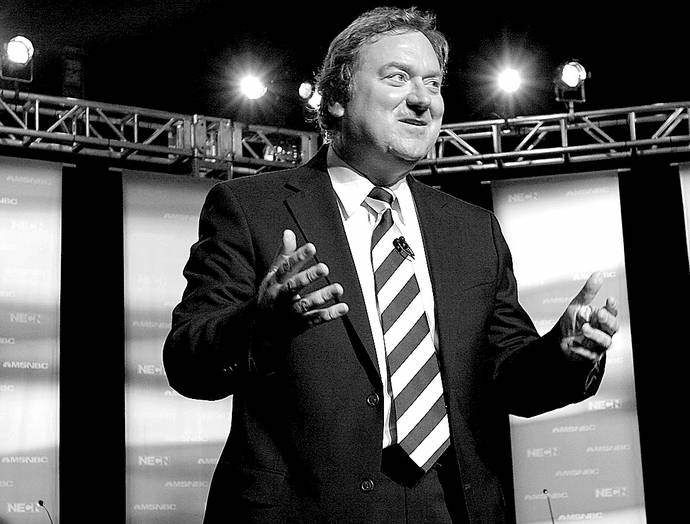Tim Russert a fixture in political news
Published 5:00 am Saturday, June 14, 2008

- Tim Russert speaks to the audience before a September debate of Democratic presidential hopefuls at Dartmouth College in Hanover, N.H. Russert died Friday of an apparent heart attack.
Tim Russert, a fixture in American homes on Sunday mornings and election nights since becoming moderator of “Meet the Press” nearly 17 years ago, died Friday after collapsing at the Washington bureau of NBC News. He was 58.
His death was announced by Tom Brokaw, former anchor of “NBC Nightly News,” who broke into the network’s programming just after 3:30 p.m.
An NBC spokeswoman, Allison Gollust, said in an e-mail message Friday night that Russert had died of a “sudden heart attack.” His internist, Dr. Michael Newan, said on MSNBC that an autopsy had found that Russert had an enlarged heart and significant coronary artery disease.
When stricken, Russert had been recording voice-overs for this Sunday’s program. Russert, who was also the Washington bureau chief of NBC News and a senior vice president, had recently returned from a trip to Italy to celebrate the recent graduation of his son, Luke, from Boston College.
With his plain-spoken explanations and hard-hitting questions, Russert played an increasingly outsize role in the media’s coverage of politics. The elegantly simple white memo board he used on election night in 2000 to explain the deadlock in the race between George W. Bush and Al Gore — “Florida, Florida, Florida,” he had scribbled, in red marker — became one of the most iconic images in the history of American television coverage of the road to the White House.
Sharp questions
More recently, he drew criticism for his sharp — some said disproportionately sharp — questioning of Sen. Hillary Clinton in her pursuit of the Democratic presidential nomination, most notably in a debate between her and Sen. Barack Obama in Cleveland in February. But he asked tough questions of Obama, too, as well as of any number of Republicans, including a memorable confrontation in the late 1990s with Rep. Dan Burton, R-Ind., who was a vocal critic of the Clinton administration.
“He really was the best political journalist in America, not just the best television journalist in America,” said Al Hunt, the Washington executive editor of Bloomberg News and the former Washington bureau chief of The Wall Street Journal.
Russert’s political analysis was born from experience: He had worked as a counselor for Gov. Mario Cuomo of New York in 1983 and 1984; for five years before that he had been special counsel to Sen. Daniel Patrick Moynihan of New York. He had been tapped to run Moynihan’s New York City office before he turned 30.
“He absolutely set the standard for moving from politics to journalism,” said Hunt, a close friend who first met Russert in his days working for Moynihan. “He proved it could be done. He proved it could be done with extraordinary skill and integrity.”
Or, as Ethel Kennedy, the widow of Robert F. Kennedy, put it to NBC on Friday: “He had done his homework, so we didn’t have to do ours. We longed to hear what his take on world events was.”
Loyal fans
“Meet the Press,” the top-rated public affairs program on television, is viewed by nearly 4 million people each Sunday, according to Nielsen Media Research. As word of Russert’s death spread across BlackBerry and computer screens, tributes poured into NBC from the highest elected officials and competitors on other networks. Dozens of loyal viewers also posted tributes on media Web sites.
Brokaw is scheduled to host a special edition of “Meet the Press” on Sunday, which will pay tribute to Russert’s life and career. With Russert’s unexpected passing, NBC will be soon be forced to confront an important question with no immediately easy answer: how to replace its lead political analyst with the presidential election just five months away.
In a statement, President Bush described Russert as “an institution in both news and politics for more than two decades.
“He was always well-informed and thorough in his interviews,” Bush said. “And he was gregarious off the set as he was prepared on it.”








